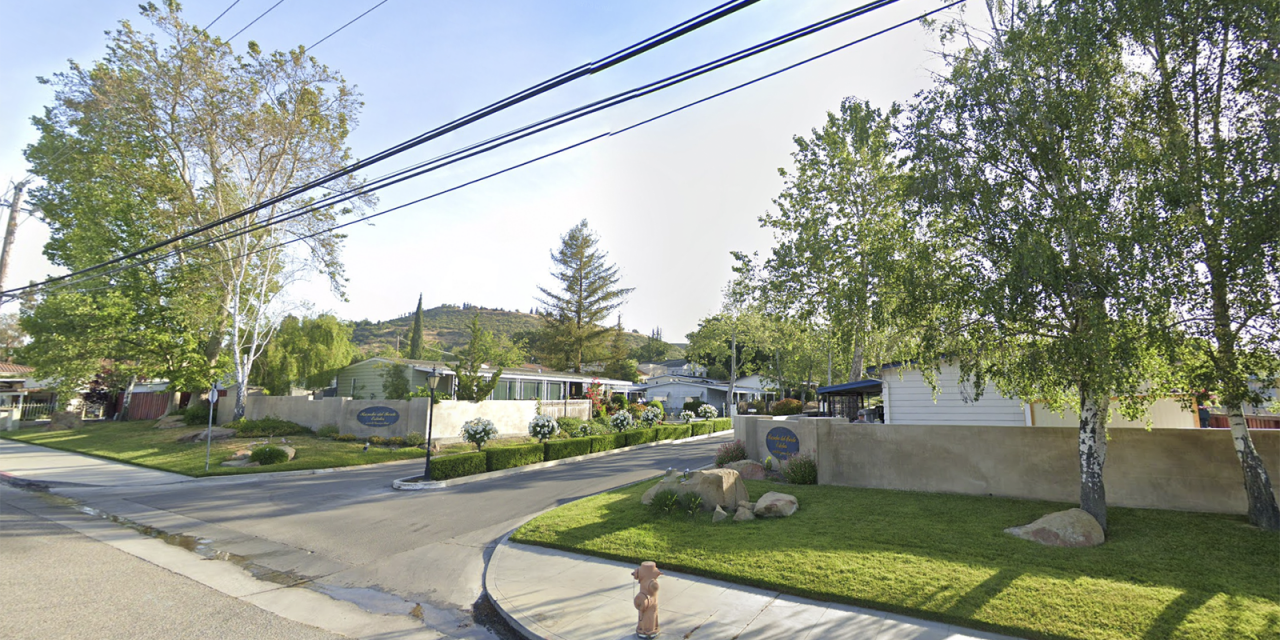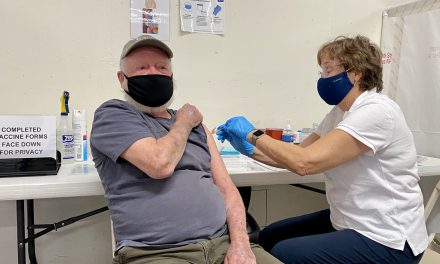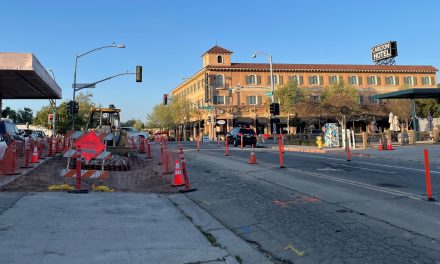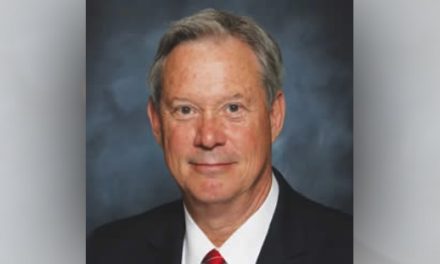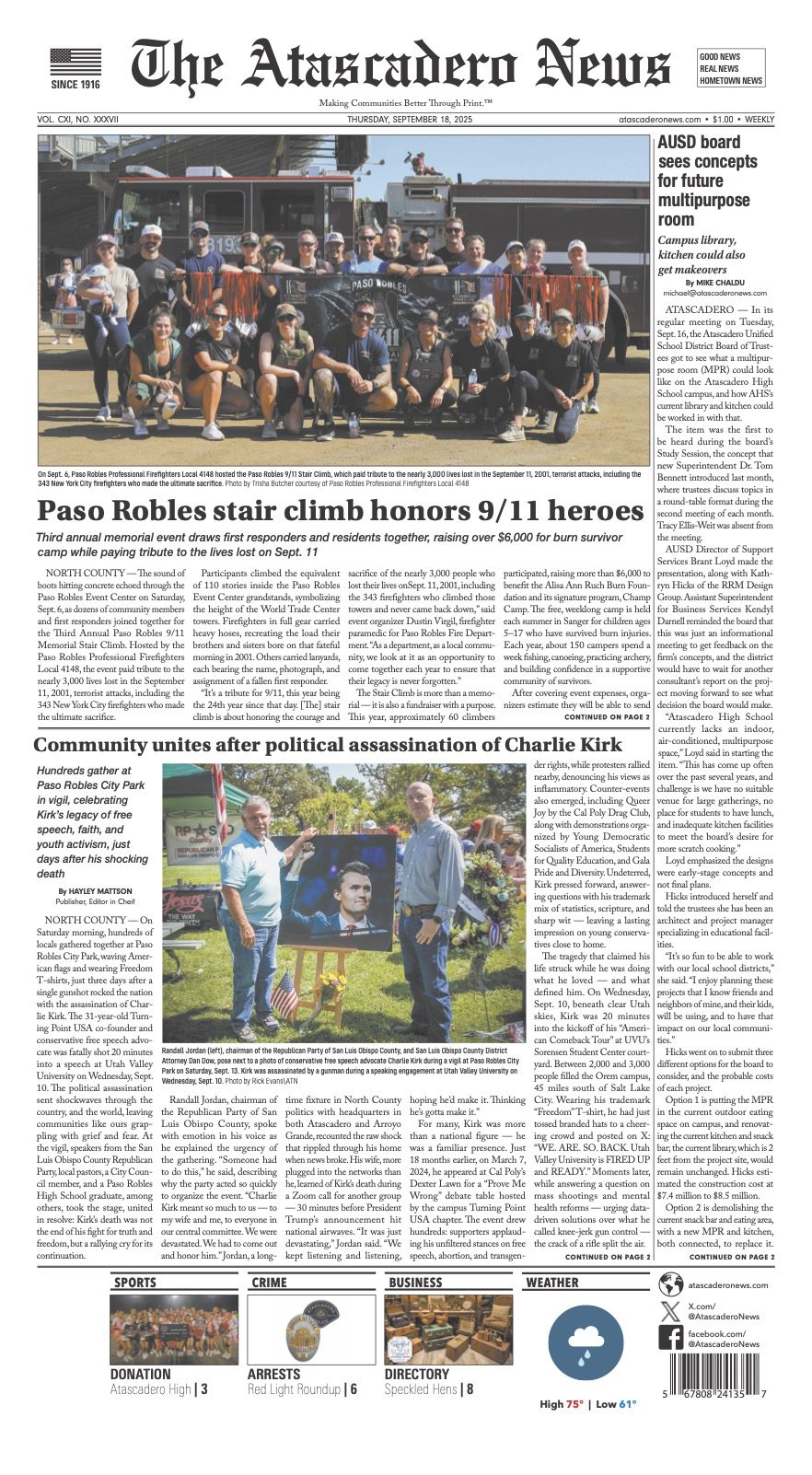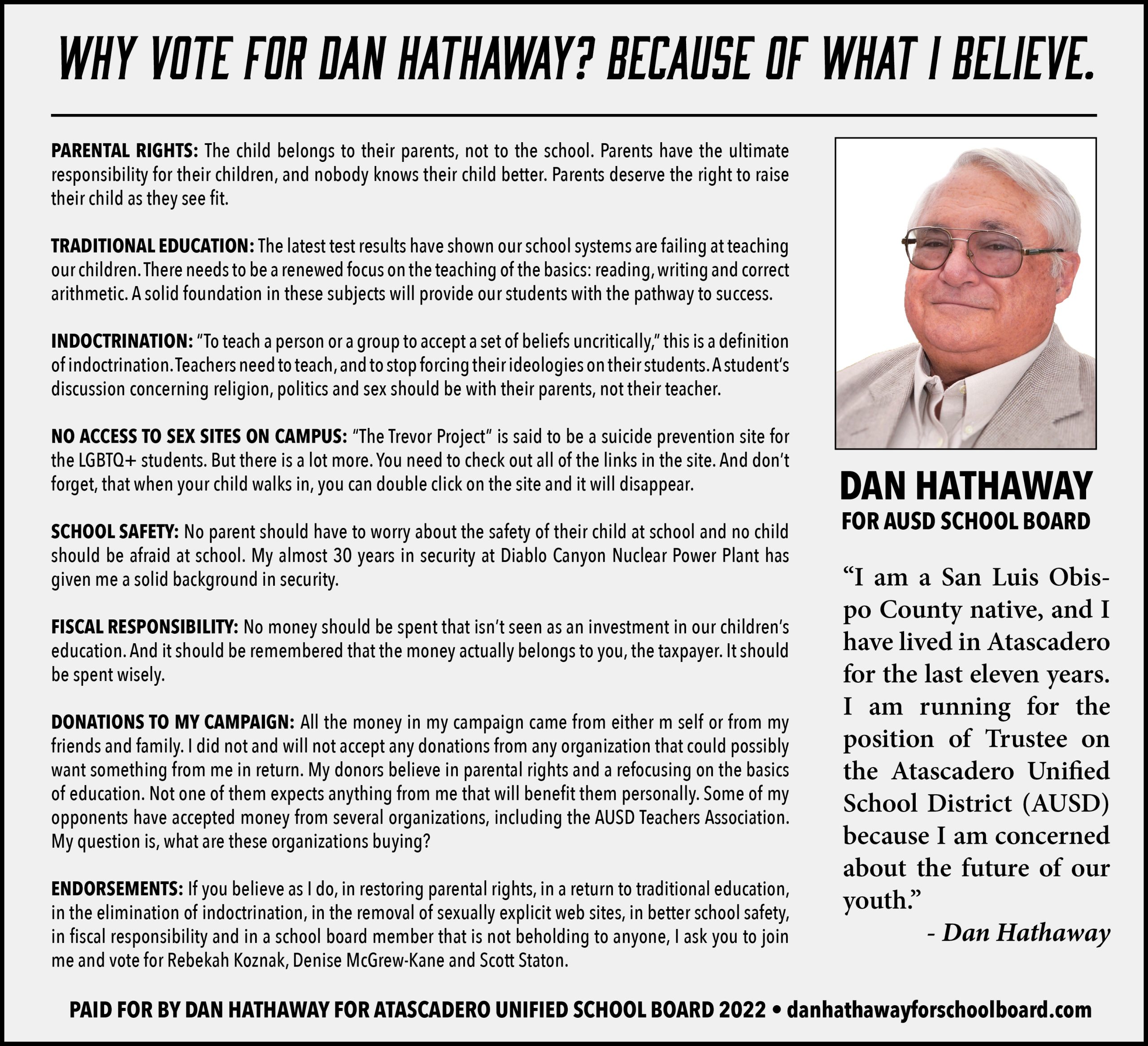ATASCADERO — The Atascadero City Council voted unanimously Tuesday to postpone its decision on how to deal with predatory mobile home park owners in the city.
The City formed an ad hoc committee, comprised of Council members Roberta Fonzi and Charles Boureau last September after concerned mobile home residents brought the issues to their attention, mostly centered around the city’s largest mobile home park, Rancho Del Bordo Mobile Home Estates at 10025 El Camino Real.
Residents claim that the management at Del Bordo is engaged in practices that, while they may be legal, could also be considered predatory. Del Bordo management is accused of raising space rents sharply and unexpectedly, which not only makes it more difficult for the tenant to afford the space but also lowers the resale value of their mobile home, making it more difficult to sell the home at an acceptable price. Del Bordo also requires new tenants to make four times the space rent in income in order to be considered, making it even more difficult for tenants to find a buyer when they want to escape the situation.
“It’s well known in the industry by both park owners and park residents that there’s a direct inverse relationship between space rental and the amount you can sell your home for,” Bourbeau said.
Often, unable to pay the high price of rent and unable to sell their home, tenants are forced to abandon the homes, which park management is then able to buy at a rock-bottom price.
Bourbeau said that the ad hoc committee had confirmed that most of the complaints about predatory practices were coming from residents at Del Bordo, although there were some similar complaints received about the Lost Oak Mobilehome Park.
“This particular park (Del Bordo) is the most difficult park in the community to sell a home in,” Bourbeau said. “But (Del Bordo’s) premise is that the City should not interfere with what standards are used to approve tenants unless they are willing to guarantee the payment of rent.”
Bourbeau also noted that several mobile home parks in the area are locally owned, family-run businesses that charge fair amounts for rent and have happy residents who don’t have any complaints about the management of the parks.
Lost Oak resident Kathy Choate spoke during the public comment portion of the meeting and said that the mobile home park used to be family owned but was sold to a corporation five years ago at which point the new management “began a systematic process to increase the cost of living in the park while reducing amenities.”
“The lack of local regulations has created an environment that is rife for abuse,” Choate said.
Rancho Del Bordo resident Karen Levanway spoke out against using the same model lease program that they use in Santa Maria, saying that it offered none of the protections that residents are looking for.
“What we do need right away is the (emergency ordinance),” she said. “We need that desperately because what can happen has already happened in a park other than ours — a corporation buying from mom and pop and changing things so drastically that residents can’t even use their clubhouse anymore because it’s used for management now.”
City staff presented the Council with several options to deal with the problem of predatory practices at mobile home parks including an emergency ordinance to ban space rent increases on a temporary basis, a model lease program and requiring park management to explain the risks of owning a home in a mobile home park to potential buyers, or the possibility of implementing rent control measures.
Each of the Council members had a different take on what should be done.
Fonzi was in favor of full disclosure for potential tenants on the risks associated with owning and selling a mobile home in a mobile home park.
“This is one of the things that I would like to see for sure,” Fonzi said. “So people truly know what they’re getting into, because sometimes it’s easier to get into than it is to get out of.”
Council member Heather Newsom proposed that the Council take no action on the item, fearing that putting a moratorium in place could leave the City open to litigation due to the fact that the state of California requires that City’s allow for landlords to earn a fair rate of return on their investment.
“After listening to the attorney, I feel that we can’t do anything for the one park without affecting the others,” she said.
“My position is not to take any action at this time because I don’t want to cause any unintended consequences.”
Council member Funk spoke in favor of a moratorium to give the City time to either develop a conflict resolution process and/or a model lease program or for the issue to be settled through legislation at the state level.
“It’s something that should be bureaucratically simple and would guarantee people are getting that rate of return on their parks,” she said. “I think as we look at the situation, we have to realize that we have a lot of people at risk. This is not a situation where the market takes care of things. This is not a free market… Let’s see if we can make ourselves less of a target for predatory investment.”
Bourbeau said that he was reluctant to have City staff spend the time necessary to formulate an emergency ordinance and called for the Council to continue its ad hoc committee for another two months.
“I think it takes a fair amount of work to implement one of those,” he said. “So I’m more inclined that maybe we continue our ad hoc committee, meeting with owners and residents together to see if we can come up with some solutions. I’m reluctant to take the big step (of implementing an emergency ordinance) and I’m reluctant to to take no action at this time. So I’m kind of offering to be further on the line to spend some more time on this.”
Fonzi agreed with Bourbeau with the caveat that the Council agree to make a decision at the end of two months.
“I don’t want this to drag on forever,” she said. “I’d give it two months but after that I really want to get it done.”
Fonzi added that she would like City staff to begin work on requiring risk disclosures to new tenants right away.
“I would like to see that go forward regardless of the action we take two months from now,” she said.
The Council voted 5-0 to continue with the ad hoc committee and Bourbeau said that the committee would “develop a mutually agreeable dispute resolution process or model lease program, work on disclosures and come back with an action plan or set of possibly actions.”

